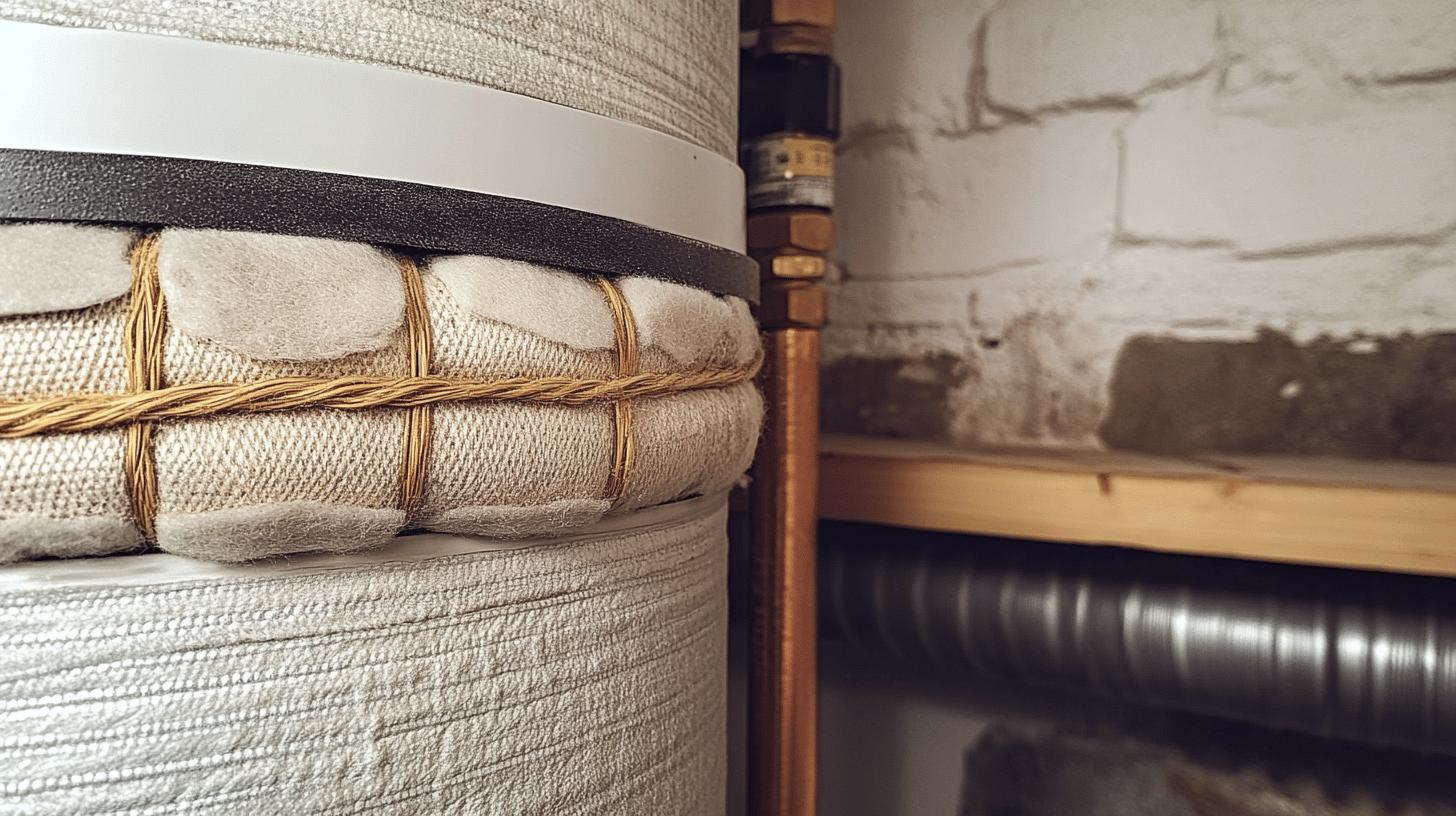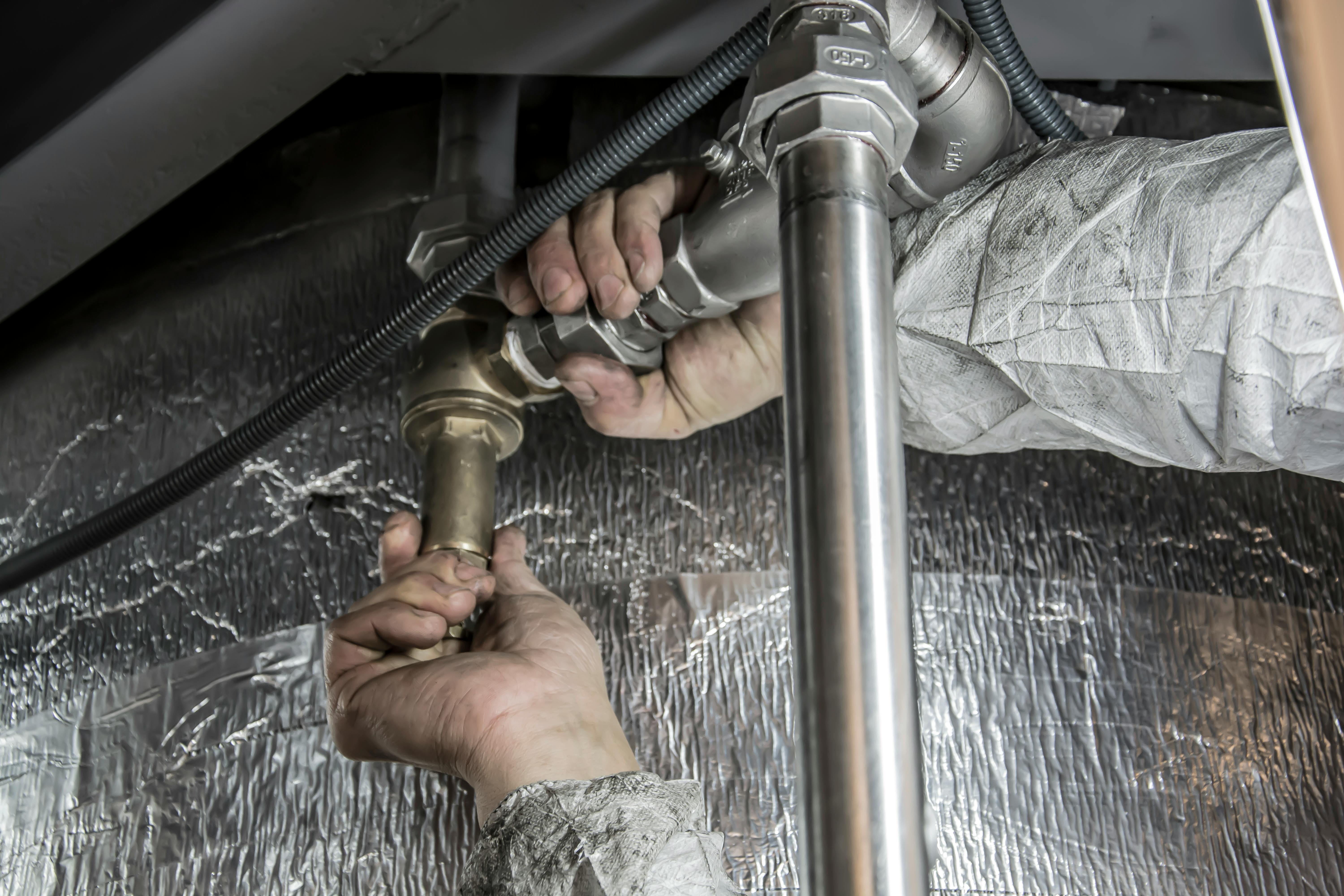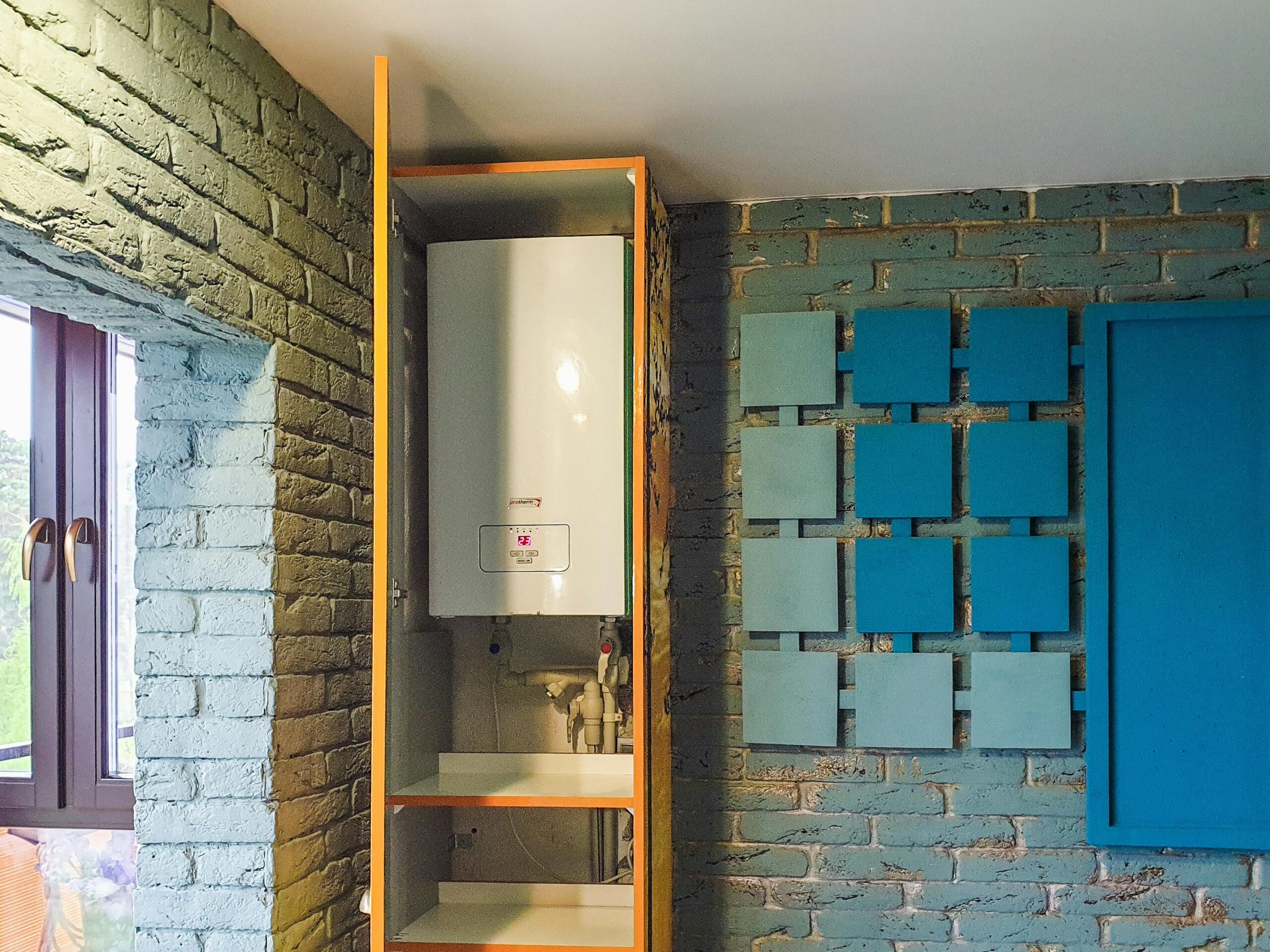TL;DR:
- Best Water Heater Locations: Basements, utility rooms, garages, outdoor areas.
- Basements: Ample space, risk of flooding.
- Utility Rooms: Central location, space limitations.
- Garages: Easy access, requires insulation.
- Outdoor: Saves indoor space, needs weatherproofing.
- Indoor vs. Outdoor: Indoor is protected, outdoor saves space but requires weatherproofing.
- Compliance: Necessary to follow local codes; involves application, inspection, and approval by licensed plumbers.
- Energy Efficiency: Install near points of use, insulate pipes, choose energy-efficient models, and maintain regularly.
- Safety Guidelines: Proper venting, avoid flammables, maintain clearance, and follow manufacturer guidelines.
- Professional Services: Integrity Plumbing offers licensed installation, ensuring compliance and efficiency.
Wondering where to put your water heater in Rio Grande City? It’s more than just picking a convenient spot—where you install it can affect energy use, safety, and your plumbing. In this article, we’ll break down the best spots like basements, utility rooms, garages, and even outdoors, with their pros and cons. By the end, you’ll know the best place for your water heater to work well and last longer. Let’s get started!
Best Locations for Water Heater Installation in Rio Grande City
When installing a water heater in Rio Grande City, there are a few common spots people usually go for: basements, utility rooms, garages, and outdoor areas. Each option has its pros and cons, so it’s important to pick the one that works best for your home.
Basements are great for bigger water heaters since they have lots of space and keep it out of the way. Utility rooms are more central, but space might be tight. Garages make maintenance easier but need protection from extreme temperatures. Outdoor setups save space inside but need to be weatherproof.
Advantages and Disadvantages of Each Location:
Basements
- Advantages: Plenty of space, less impact on living areas.
- Disadvantages: Potential for flooding, may require additional plumbing work.
Utility Rooms
- Advantages: Centrally located, convenient for maintenance.
- Disadvantages: Limited space, potential noise issues.
Garages
- Advantages: Easy access, separate from living areas.
- Disadvantages: Temperature fluctuations, may need insulation.
Outdoor Areas
- Advantages: Saves indoor space, suitable for tankless units.
- Disadvantages: Requires weatherproofing, exposed to elements.
When picking the best spot for your water heater, think about how much space you have, how easy it will be to access for maintenance, and whether it’ll be exposed to weather. A good location can make installation and future repairs easier, saving you time and hassle. Also, consider how the spot will affect your water heater’s efficiency and how long it lasts. By keeping these things in mind, you’ll find the perfect spot that works for your home and keeps your hot water running smoothly.
Indoor vs. Outdoor Water Heater Installation in Rio Grande City

Indoor water heaters are a good choice because they’re protected from weather, which means they last longer and need less maintenance. The downside is that they take up space inside your home.
Outdoor setups save space and work well for tankless units, which are small and can be mounted outside. They’re easier to access for maintenance, but they need to be weatherproofed to handle Rio Grande City’s climate. With mild winters, freezing isn’t a big issue, but the hot summers can cause overheating, so outdoor units need to be built to handle temperature extremes.
Both indoor and outdoor heaters need proper ventilation and weatherproofing. Indoor ones need ventilation to prevent moisture and gas issues, along with good drainage. Outdoor units need protection from rain, sun, and other elements. Making sure these things are covered will keep your water heater running efficiently and safely, no matter where you put it.
Compliance with Local Building Codes and Regulations
Following local building codes in Rio Grande City is essential for keeping your water heater safe and legal. These rules set standards for installation to prevent accidents and make sure your system runs efficiently. If you don’t comply, you could face fines or deal with serious safety risks like gas leaks or bad venting.
Steps Involved in Obtaining Permits:
- Application Submission: Fill out and submit the necessary forms to the local building department.
- Inspection Scheduling: Arrange for an inspection by a certified building inspector to review the installation site and plans.
- Approval and Issuance: Once the inspection is passed, the permit will be issued, allowing the installation to proceed.
Hiring licensed plumbers guarantees your water heater meets local codes and regulations. They know Rio Grande City’s specific rules and handle the permit process smoothly. Plus, they provide the required paperwork and install everything to the proper standards, ensuring your water heater is set up correctly and legally.
Energy Efficiency Considerations for Water Heater Placement

Placing your water heater in the right spot can boost energy efficiency by cutting down on energy use and heat loss. Installing it near areas like the kitchen and bathroom shortens the distance hot water has to travel, helping to keep it from losing heat along the way.
Energy-Saving Tips for Water Heater Placement:
- Install Close to Points of Use: Reduce the distance hot water travels to minimize heat loss.
- Insulate Pipes: Use pipe insulation to maintain water temperature as it travels through your home.
- Choose a Warm Location: Install the unit in a warmer part of the house to reduce energy required for heating.
- Use Energy-Efficient Models: Opt for modern, energy-efficient water heaters that consume less power.
- Regular Maintenance: Perform regular maintenance to ensure the unit operates at peak efficiency.
Tankless water heaters are great for saving energy since they heat water only when you need it, avoiding the heat loss that happens with tank-style heaters. Adding insulation to both the heater and pipes helps keep water hotter for longer, improving efficiency. For outdoor units, extra insulation is key to protect against extreme temperatures and keep energy use down. Using these tips will help you save on bills and lower your environmental impact.
Safety Guidelines for Water Heater Installation
Following safety guidelines when installing a water heater is essential to avoid hazards and keep it running smoothly. Make sure there’s proper venting and drainage to prevent gas buildup and water damage. Keep the heater away from anything flammable and leave enough space around it for maintenance and airflow. Sticking to the manufacturer’s instructions and local safety rules will help reduce risks and make your water heater last longer.
Common Safety Practices for Water Heater Installation:
- Proper Venting and Drainage: Ensure the unit is well-ventilated and has appropriate drainage to prevent gas buildup and water damage.
- Avoid Flammable Materials: Keep the water heater away from flammable substances to reduce the risk of fire.
- Adequate Clearance: Maintain sufficient space around the unit for maintenance and ventilation purposes.
- Follow Manufacturer Guidelines: Adhere to the instructions provided by the manufacturer and comply with local safety regulations.
Regular inspections are key to keeping your water heater safe and efficient. They help catch issues like leaks or gas problems before they get serious. By checking the unit and doing maintenance regularly, you’ll make sure your water heater runs smoothly and reliably provides hot water for your home.
Professional Installation Services in Rio Grande City

Integrity Plumbing Services offers top-quality water heater installation, ensuring every job meets high safety and quality standards. With years of local experience, they handle everything from installation to maintenance.
Hiring professionals has many benefits. They ensure compliance with local codes, crucial for safe and efficient operation, and help avoid costly installation mistakes. Their expertise and tools allow for quick, correct installations, saving you time and stress.
Local knowledge is vital in Rio Grande City, as installers understand the specific climate factors that impact your water heater’s performance and longevity.
Licensed professionals at Integrity Plumbing Services provide warranties and maintenance services for added peace of mind. Warranties protect your investment, while regular maintenance keeps your water heater running smoothly, enhancing its efficiency and lifespan.
Final Words
Choosing the right spot for your water heater in Rio Grande City means looking at the pros and cons of places like basements, utility rooms, garages, and outdoor areas. Each option has its own benefits and challenges, like limited space or exposure to the elements.
When deciding between indoor and outdoor installation, think about the local climate. Indoor units are shielded from the weather but take up space, while outdoor units save space inside but require weatherproofing.
Always make sure to follow local building codes and focus on energy efficiency and safety during installation. Sticking to these guidelines will help you set up your water heater smoothly and safely.
For expert advice on where to install your water heater in Rio Grande City, Integrity Plumbing Services can help you make the best choice for your home.
FAQ
Where is the best place to install a water heater?
Common spots for water heaters include basements, utility rooms, garages, and outdoor areas. Each location has its advantages, such as available space, easy access, and protection from the elements.
Do you need a permit to replace a water heater in Texas?
Yes, in Texas, replacing a water heater typically requires a permit. Ensuring compliance with local building codes is crucial for safety and avoiding fines.
How much does it cost to install a water heater in Texas?
In Texas, the cost to install a water heater typically ranges from $700 to $1,500, depending on the type and how complicated the installation is. Prices can also vary by region.
Where is the best place to put a gas water heater?
Basements usually have space for larger units, while garages and utility rooms provide central locations. Outdoor areas require weatherproofing to shield the unit from the elements.

